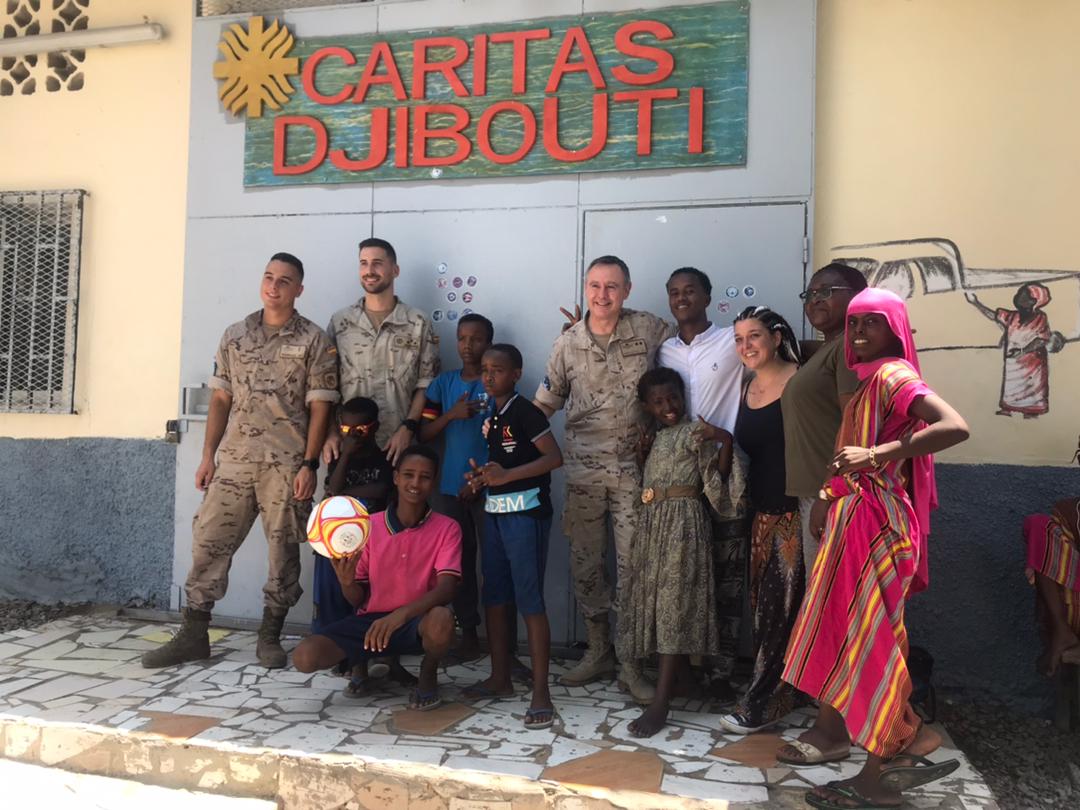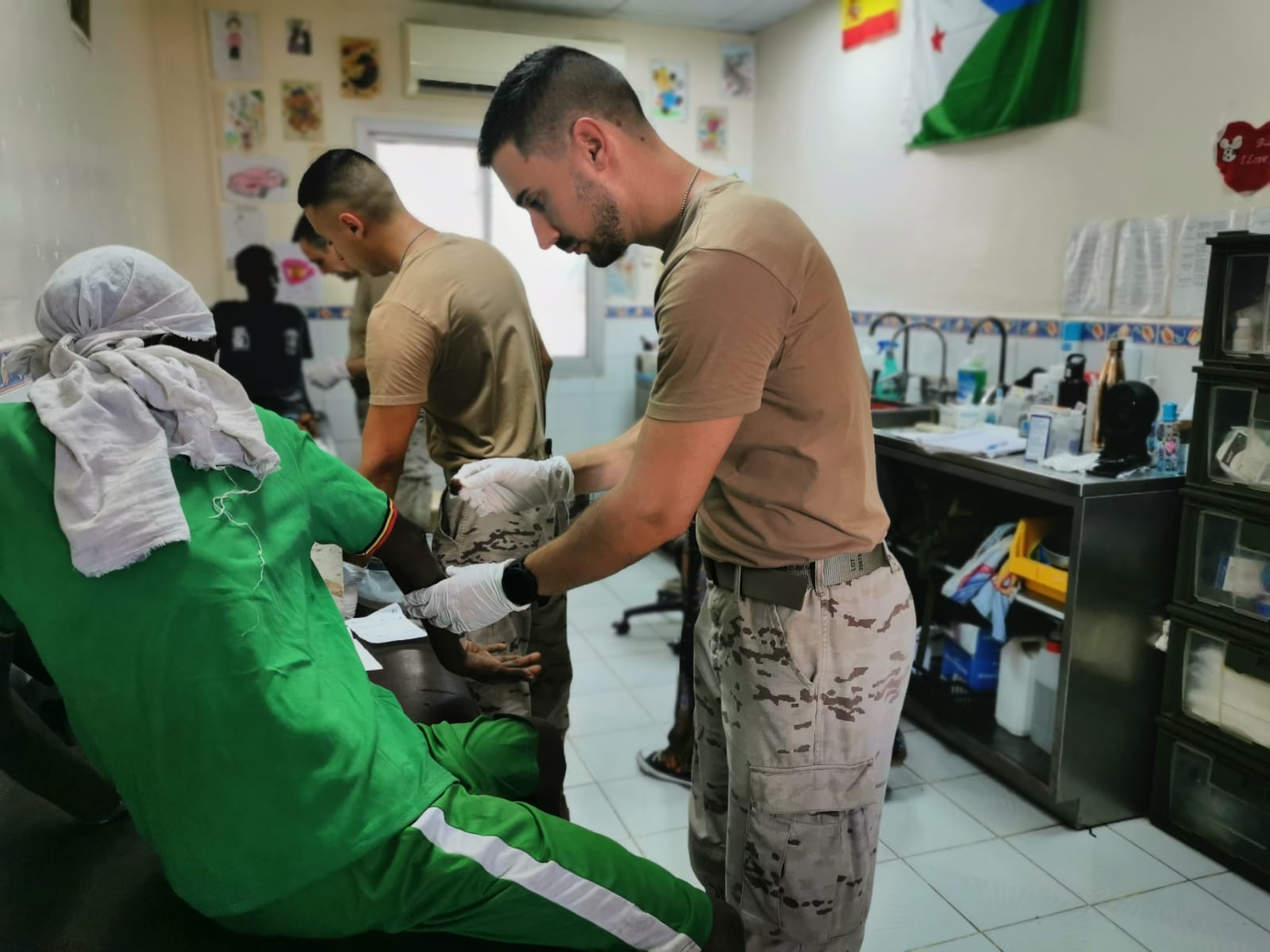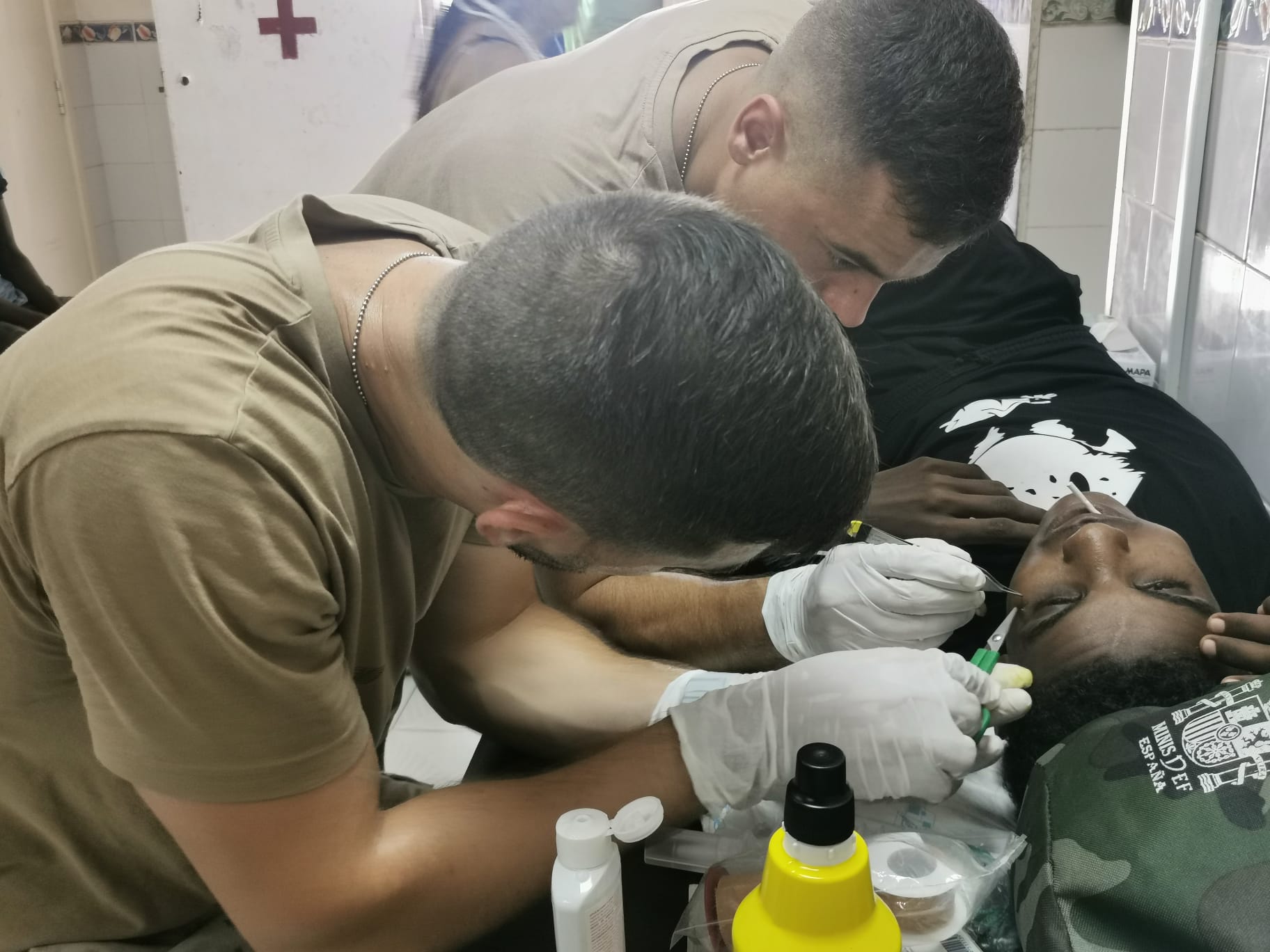
Medical personnel from the Orion airborne detachment work with caritas Djibouti
- The ROLE1 medical unit gives medical assistance in the Caritas Djibouti medical dispensary.
The Spanish military contingent has deployed ROLE 1 sanitary personnel, composed of a medical officer, a nurse officer and a sanitary technician private. These staff provide medical assistance to the mission.
As part of the civil-military cooperation activities, the possibility has emerged for these personnel to provide health care to the Caritas Djibouti branch.
The agencies in Djibouti are in contact with the officer of the detachment for the coordination of donations between the NGOs in Spain, who request the support of the Ministry of Defence, to put them in contact with the NGOs in the country and, for those donations that are planned from Spain, the deployment staff is in charge of their reception and distribution in Djibouti.
On this occasion, Caritas explained to the ICMC Officer the work they carry out in the first aid kit and, after proposing it to the Force Commander and the ROLE staff, they willingly volunteered to help on a regular basis, when the mission allows it.
Caritas facilities in Djibouti provide assistance to orphans, children from low-income families and children who have migrated irregularly to escape the situation in their home countries. The number of children exceeds one hundred, to whom the organisation provides food, basic medical care, through the voluntary work of medical personnel, and in more serious cases, they assist them by transferring them to the agreed hospital centres, and in some cases, they also provide them with provisional lodging in their facilities.
The health personnel have mostly attended to minors, although they have also attended adults who have come to the centre. Operation Atalanta, under the banner of the European Union, is part of Spain's engagement in the struggle to maintain naval security off the coasts of Somalia and neighbouring countries in the Indian Ocean region. To support these dispositions, the Council of the European Union approve on November 10th 2008 the creation of a naval air force. This was the first EU naval operation to be conducted in the framework of the CSDP. Shortly afterwards, this operation was launched.
Spain's engagement from the beginning of the operation has been total, materialising in maritime surveillance missions with the goal of anticipating and intervening to put an end to acts of piracy and assisting in the surveillance of illegal activities off the coast of Somalia.
Following the entry into force of Decision (CFSP) 2020/2018, which prolongs the mandate of Operation Atalanta, the missions undertaken have been extended to include the policing of illegal, unreported and unregulated fishing and the trafficking of drugs, arms and charcoal, which reinforces Atalanta's role as a factor of naval security in the area, being key to success in the fight against piracy and the protection of World Food Programme (WFP) vessels and other vulnerable vessels.
The new EU mandate extends the area of operation to the Red Sea and also includes the fight against illegal trafficking and cooperation with other operations. Spain's permanent contribution consists of the following assets:
- DAT Orion of the Air and Space Army, equipped with a D-4 VIGMA maritime patrol and reconnaissance aircraft (MPA version of the CN-235 aircraft) deployed in Djibouti, and which has 49 military personnel.
- Navy ships, which have an embarked air unit and operational marine infantry security teams.
- In March 2019, Spain assumed leadership of 'Operation Atalanta' from the Spanish Headquarters (ES-OHQ) in Rota.
Fotos




